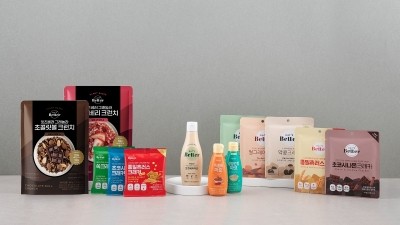India’s plant-based blow: FSSAI order to delist products with dairy terms to hit online AND offline sales

Earlier this month, FSSAI issued an order to food firms operating via e-commerce to delist all non-dairy products, including plant-based products from their sites with immediate effect, following an earlier complaint from the National Cooperative Dairy Federation of India (NCDFI) which operates the country’s largest dairy brand Amul.
According to the order, NCDFI’s complaint alleged that ‘non-dairy or plant-based products’ had violated FSSAI regulations which prohibit the use of ‘any dairy term for a product which is not milk, milk product or a composite milk product e.g. plant-based products’.
“FSSAI has [thus issued an order] dated September 1st 2021 to all e-commerce FBOs to investigate the labeling declarations of such products at their end and delist such products from their platform. Reports on this will need to be furnished to FSSAI,” FSSAI Executive Director (Compliance Strategy) Inoshi Sharma, who signed the original order, told FoodNavigator-Asia.
“The regulatory provisions [governing this] exist in India under the ‘General Standard for Milk and Milk Products’, under the ‘Food Safety and Standards (Food Products Standards and Food Additives) Regulations, 2011.”
More troubling for plant-based firms right now though is that these labelling standards are set to not only apply to products sold online, but will extend to all plant-based products, including those sold offline in mom-and-pop stores or supermarkets.
“This directive is applicable to all [food firms], whether they are operating online or offline,” Sharma said.
“All [food firms] who are manufacturing such products which are in contravention to the above regulatory provisions are being issued notices to modify their product labels suitably to comply with the directions of FSSAI.
“Those who fail to comply with the said directives may [find themselves in violation of the law] for offences like ‘misbranding’, which are compoundable offences that may [lead to an] imposition of monetary penalties as well as other actions like suspension of licenses, etc.”
Exceptions
In a bid to reach some middle ground though, FSSAI has made allowances for certain products such as coconut milk and peanut butter which have been used as is for many years in India.
“[This is] based on the internationally accepted principle that the dairy terms were being traditionally used in their nomenclature, and such products are not substitutes for milk or milk products,” said Sharma.
“Further, the term 'curd' is also not considered a dairy term exclusively and has been associated with non-dairy products such as ‘soybean curd’ in our regulations.”
Blow to the industry
The plant-based industry in India is undoubtedly less than pleased with this development. When FSSAI proposed draft regulations banning dairy terms such as milk and cheese last year, Good Food Institute India Managing Director Varun Deshpande had already told us that such a move would only serve to stifle local innovation – and this development is no different.
“[Prohibitions] against the use of dairy terms for plant-based products is against the interest of a young industry with major promise for sustainability, job creation, and consumer choice,” he said.
“Our research indicates that more than 70% of Indians are able to successfully identify the source of cow's milk vs plant-based milks (whether from soy, almond, or other sources) [and] 84% believe that 'plant-based milk' is the appropriate terminology for these products.
“[This shows Indian] consumers are not only educated enough about plant-based dairy to distinguish between these products and animal-derived dairy, they also believe that it is fair and correct to utilize dairy terms to describe them.”
Main concerns for the industry currently include not only delisting products and concerns about getting these back on virtual or physical shelves before expiry dates, but also the expenses that will need to be incurred for label changes and marketing, and whether this development will affect the industry in the eyes of consumers.
FSSAI declined to share a copy of NCDFI’s original complaint, declaring this is still ‘under examination/investigation’ and thus not disclosable to the public or media at this stage.
However, NCDFI Managing Director R S Sodhi has made no secret of his disdain for the plant-based dairy sector, calling these ‘lab-based, highly-processed chemical foods’ and a ‘major threat to the local dairy industry’.
According to Times of India, Sodhi has also gone on record saying that plant-based beverages such as soya milk and almond milk are in violation of FSSAI regulations as they ‘intend to substitute “milk” by masquerading the dairy term’.
Sodhi is, of course, in full support of FSSAI’s recent move to order the delisting of 'masquerading products’, calling this a move that will ‘protect the interests of 100 million milk producers in India [and] safeguard gullible consumers.”



















